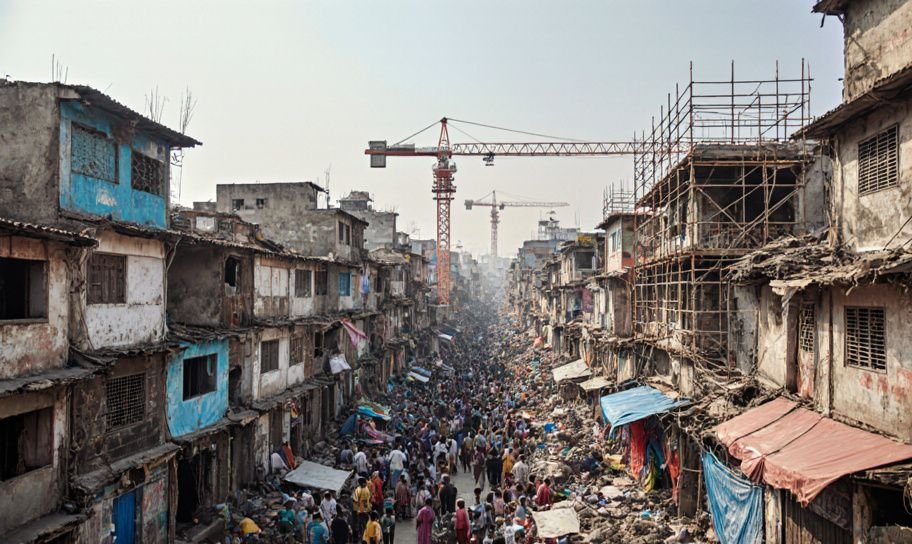
Summary: The Bombay High Court upheld a decision made by an arbitrator that confirmed the agreements for a slum rehabilitation project in Malad, Mumbai, were valid. The people who brought the case argued that the agreements broke tribal land laws, but the court disagreed with their claims.
In the case of Ravi Raghunath Khanjode and 23 Others vs. Harasiddh Corporation, the disagreement was about three pieces of land in Malad (East), Mumbai. The people bringing the case said they were the rightful heirs of the original owner and argued that the agreements about the properties were not valid because of tribal land restrictions.
The decision made by the arbitrator on March 29, 2022, said several agreements were valid and had to be followed. These included: - The Agreement from July 10, 1981 - The Three-Party Memorandum of Understanding (MOU) from July 30, 1997 - The Agreement from August 11, 2010
The arbitrator also decided that some agreements made in 2014 were illegal and not valid.
"The arbitrator decided that the Agreement, Power of Attorney, and MOU dated November 25, 2014, made in favor of Petitioner No.24 is illegal, null, and void."
The people who brought the case challenged the arbitrator's decision under Section 34 of the Arbitration Act, arguing: - They didn't have the necessary permissions as required by the Maharashtra Land Revenue Code (MLRC) and the Bombay Tenancy and Agricultural Lands Act (BTAL). - The arbitrator's explanation was not detailed enough. - The agreements broke rules about transferring tribal land.
Permission Issues: The court pointed out that permissions under the BTAL Act had been obtained, and the agreements were not invalid because of missing permissions at the time of sale.
Reasoning in Award: Although the court noted that the arbitrator's explanations were short, it found them to be enough. The court stressed that the main issue was the supposed oral cancellation of agreements, not the permissions.
Tribal Land Restrictions: The court referred to an earlier decision that allowed slum development on the land, showing that the issue of tribal land restrictions had already been resolved.
"The Division Bench allowed the slum scheme on the land in question without objecting to it based on breaking the rules of Section 36A of the MLRC."
The court dismissed the case, supporting the arbitrator's decision and allowing the slum redevelopment project to continue. The judgment stressed that the arbitrator's decision did not go against public policy and showed no obvious illegality.
"I do not find any valid reason to interfere in the impugned award."
This case shows the complexities involved in land agreements, especially related to tribal land laws and redevelopment projects.